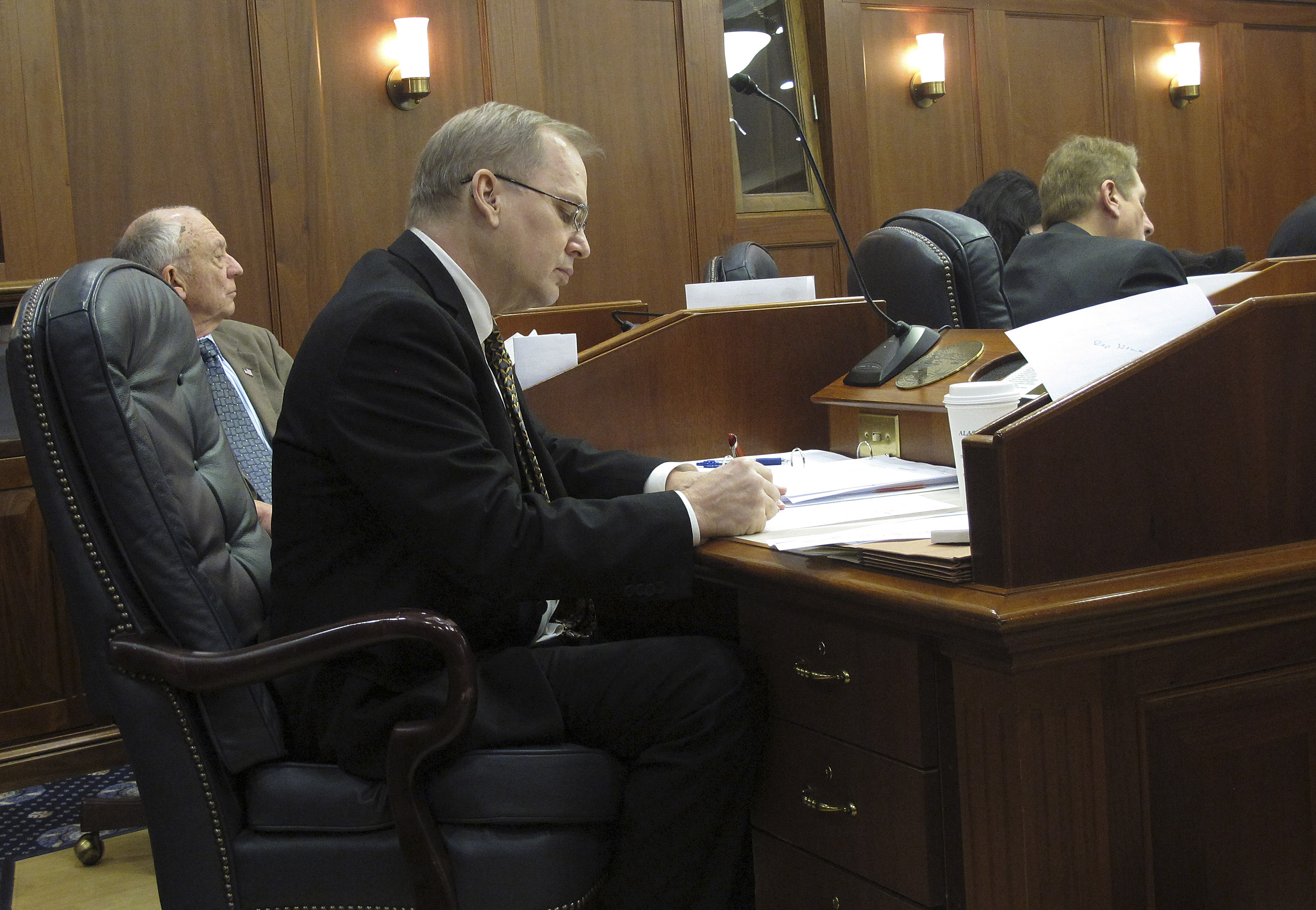JUNEAU, Alaska (AP) — The Alaska House early Friday morning advanced a state operating budget that makes broad-ranging cuts as lawmakers attempt to downsize state government in the face of massive deficits.
One conservative member of the GOP-led majority bucked her caucus by joining members of the Democratic-led minority in voting against the bill, a decision that could result in her being kicked out of the organization.
The vote, which followed hours of debate, was 25-14, with Rep. Lora Reinbold, R-Eagle River, among the dissenting votes. A requirement of being part of the majority is voting with the caucus on procedural votes, including on the budget, and Reinbold acknowledged she could face consequences for her decision. But she said she lost faith in the system in seeing money cut during the subcommittee process added back by the House Finance Committee. The House cannot expect the Senate to make changes the House isn’t willing to make itself, she said.
Members of the minority said they opposed the budget not because the cuts were insufficient but because they were too deep and would hurt kids and the needy. House Minority Leader Chris Tuck, D-Anchorage, called the budget shortsighted.
The minority offered 20 amendments, all of which were rejected. They included efforts to restore provisions related to Medicaid expansion that had been stripped by the House Finance Committee, an attempt to limit the money available for oil and gas tax credits in the coming year and a bid to add back early childhood education funding.
The House began debating the bill late Thursday morning but took a break to allow for afternoon committee hearings. The House resumed debate late Thursday afternoon and voted shortly after midnight.
The budget advanced includes $273.8 million less for agency operations compared with the current fiscal year. It’s a somewhat tricky comparison because of one-time money in the current budget in some agencies. Compared with what Gov. Bill Walker proposed, the House made bigger cuts to most agency budgets.
House Majority Leader Charisse Millett, R-Anchorage, said the caucus would have to meet to discuss Reinbold’s action. It could result in Reinbold no longer be part of the caucus, based on similar actions in the past, she said.
Democrats worried about the effect of proposed cuts to areas like early childhood education, including eliminating state support for Best Beginnings and a pre-kindergarten grant program. They acknowledged the need for the cuts but say the state needs to make smart choices.
Some Republicans said before the floor session that they saw the budget bill as a compromise and looked forward to continued work on the spending plan. Rep. Lynn Gattis, R-Wasilla, who oversaw the education department’s budget, told reporters she tried to stick to what the state is constitutionally mandated to provide.
The constitution says the Legislature shall maintain a system of public schools open to all children and may provide for other public educational institutions. Gattis said she doesn’t think early childhood education is part of that mandate.
On the floor Thursday evening, Gattis said in these tight budget times, she wants to take care of the students in the K-12 classrooms.
Whatever passes the House must go to the Senate. If there are differences between what each chamber passes, those likely will be ironed out in a conference committee.
The state, highly dependent on oil revenue, is grappling with projected multibillion-dollar deficits because of low oil prices. It plans to use the state’s savings to help bridge that gap. Walker and lawmakers are trying to reduce the size of government and preserve the state’s savings for as long as possible. The balancing act lies in trying to make cuts without sending the economy into a tailspin.
While the cuts proposed may seem small compared to the size of the deficit, lawmakers said pain will be felt. They expect this to be a multi-year process.
House Finance co-chair Mark Neuman, R-Big Lake, said the proposed reduction in unrestricted general funds for nonformula agency spending would be the largest single-year reduction in state history. He said talks have begun with the Walker administration to allow the committee to work with departments during the interim to rethink the size, shape and functions of government.
The Department of Public Safety’s commissioner has said that agency may have to ground two search-and-rescue helicopters and a plane capable of prisoner and personnel transports after the committee denied $2.4 million for an expanded aircraft section that called for adding eight employees, including maintenance workers and pilots. Cutbacks are expected in ferry service. The University of Alaska system faces a potential cut of $25 million from the current year in unrestricted general funds.
House Finance got creative in trying to pay for some programs, including proposing that some of the earnings from a fund established for merit and need-based scholarships be used for initiatives the committee saw as related to the scholarship programs, like improved local broadband.
It also cut funding for a commission tasked with identifying potential negative effects on Alaska by federal actions on federal lands in the state.

